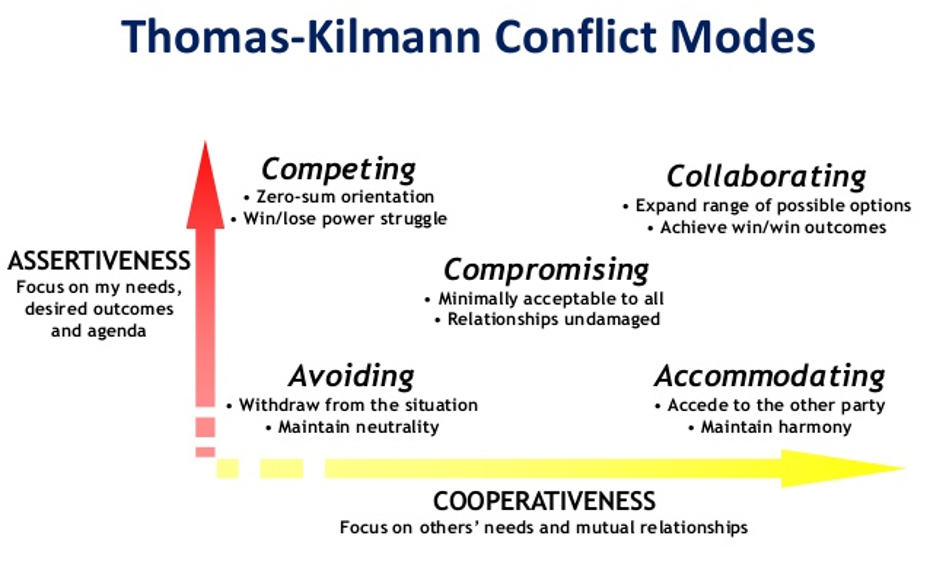Last week we outlined the Thomas-Kilmann Conflict Modes. These 5 approaches to conflict represent various ratios of assertiveness and cooperativeness in resolving conflict.

Collaborating is almost always the ideal choice, but depending on the situation it may not be possible. Wise leaders know when to apply each of the conflict styles to best address the circumstances they are navigating.
Choosing a conflict management style depends on the desired outcome, the value of the relationships involved and the time available. The following steps can help you select the appropriate conflict management style:
First, identify whether relationship or outcome is the most important aspect of the resolution:
- If the relationship must be protected, consider accommodating or avoiding it.
- If the outcome is the most important aspect, consider competing.
- If the outcome and the relationship are equally important, consider collaborating or compromising.
Next, assess the consequences and decide what you are willing to sacrifice to solve the conflict:
- If you are willing to alter the relationship, consider competing.
- If you are willing to sacrifice the outcome, consider accommodating or compromising.
- If you are not willing to sacrifice relationship or outcome, consider avoiding or collaborating.
Then, determine how much time you can devote to resolving the conflict. If there are not significant time limitations, consider collaborating or compromising. But because these are time-intensive approaches, if you do not have adequate time, consider avoiding, competing or accommodating.
Finally, compare your factors. Now that you have identified what you value most, what consequences you are willing to accept and how much time you can devote to the issue, you can select the conflict management style best suited to your situation.
Life is messy, and conflict is inevitable. Knowing where you and your team members lean in conflict scenarios will allow you to better lead by coaching them towards a more balanced approach before and during confrontations.

